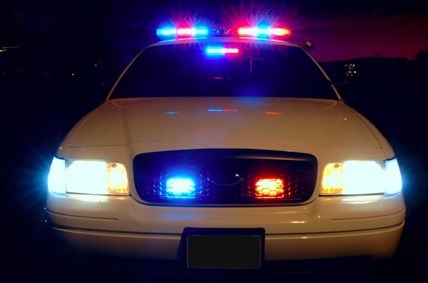
Image Credit: Wikipedia
November 28, 2014 - 5:00 AM
VICTORIA - The Supreme Court of Canada has agreed to hear a pair of British Columbia cases involving seven drivers stopped by police at roadside checks.
One of the cases involves a man who got a warning reading after blowing into a roadside screening device.
Lee Michael Wilson received a three-day driving ban in September 2012 after the roadside device registered a blood-alcohol level in the warning range.
An officer noted Wilson had an odour of liquor on his breath and Wilson admitted to having four beers hours earlier.
Wilson was subsequently issued a three-day driving prohibition, but he challenged that, arguing there was no evidence, other than the warn reading, that his ability to drive was affected by alcohol.
A B.C. Supreme Court judge agreed and dismissed the roadside prohibition.
But the B.C. Court of Appeal later overturned the lower court's ruling.
The other case involves six B.C. drivers who either refused to give a breath sample or registered a fail on a roadside screening device.
They were issued 90-day roadside driving prohibitions but challenged the law, saying the provincial government's amendments to impaired driving laws went beyond its jurisdiction and violated their charter rights.
Under the law, drivers found to have a blood alcohol content of .05 or over are registered in the warn range by the screening device and given a three-day driving suspension.
Motorists with a level of .08 or over are registered by the device in the fail range and get an automatic 90-day driving prohibition, the same as for drivers who refuse to provide breath samples.
Drivers who fail or refuse roadside screening tests can also be fined up to $500, have their licences suspended, their vehicles seized and be required to pay for remedial driving programs.
The total cost, including impoundment, towing and storage fees and the use and installation of an ignition interlock device, aside from legal costs, is estimated at $4,060.
B.C.'s Attorney General Suzanne Anton said Thursday that the province is very confident about its program but that she didn't wish to comment much more while the case is before the high court "except I will add, of course, that we calculated that it has saved 227 lives over the last three years.
"If the Supreme Court gives us further direction on how to run the program, obviously we will be taking that direction," she said. "We are very satisfied with this program that makes British Columbia's highways safer."
Anton said she's confident that the road-side screening devices are reliable.
"Operationally, those are within the purview of the police department," she said. "People want the court to look at them. We're fine with that."
The province was forced to amend its tough impaired driving law two years ago after a B.C. Supreme Court judge struck down portions of the statute as unconstitutional. The amendments allow drivers an avenue to appeal roadside prohibitions.
Last year, the government announced that motorists penalized during the period where the law was found to be unconstitutional would get a partial refund.
The thrust of the legislation was introduced to honour four-year-old Alexa Middelaer who was killed by a drunk driver in 2008.
News from © The Canadian Press, 2014